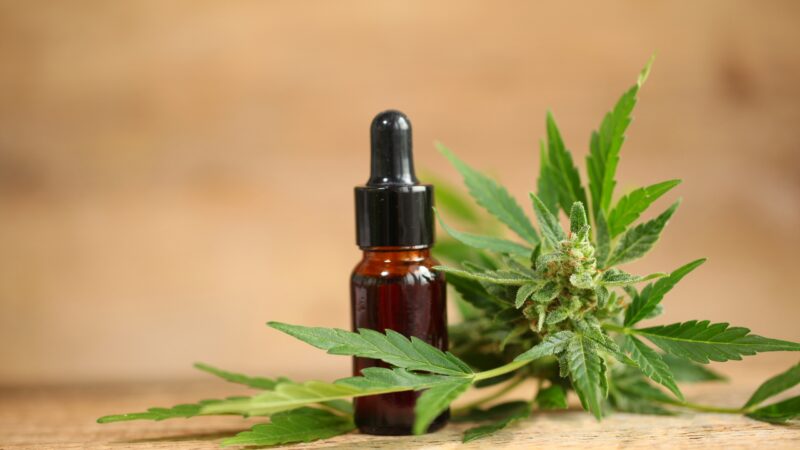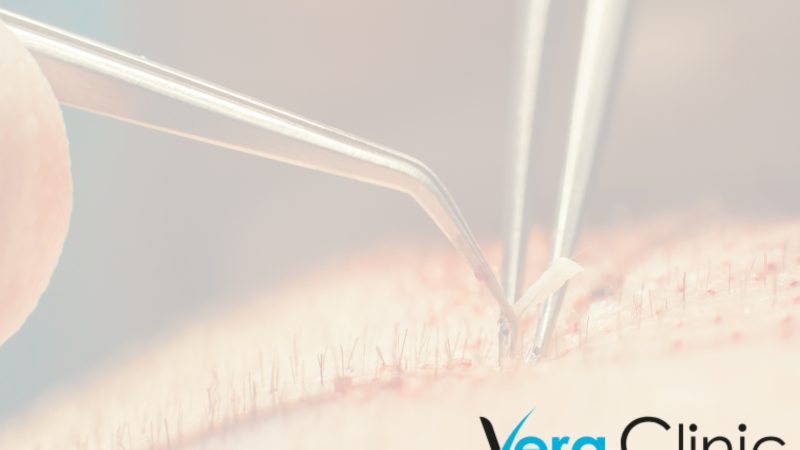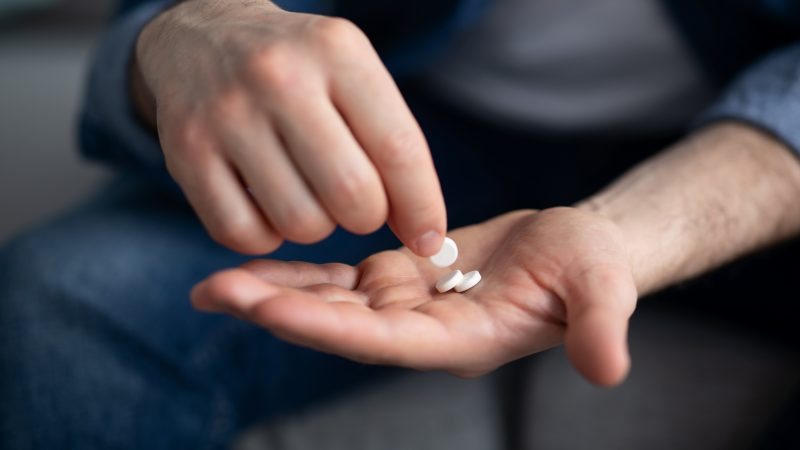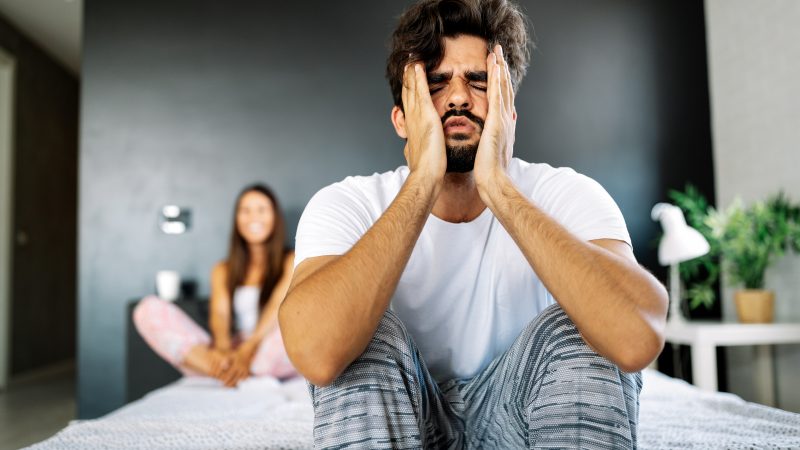The Science of Sex – Exploring the Connection Between Sexual Health and Impotence

Sex is an essential evolutionary tool, enabling organisms to reproduce, increasing the diversity of gene pools, and increasing the chances that beneficial mutations will survive.
The sexual function entails both an urge for sexual activity (libido) and the capacity to achieve and sustain an erection (erectile function). Psychological, physical, and emotional factors all play a significant role in achieving optimal sexual health and you can also check this website germanapotheke24.
1. Hormones
Hormones are chemical messengers that control many bodily functions. They affect growth, development, metabolism, sexual functioning and mood. Hormones are released by endocrine glands into the bloodstream and circulated throughout various cells of the body.
Each hormone is a water-soluble, lipid-soluble or protein-soluble signaling molecule with an unique receptor site that allows it to target specific cells. When the hormone binds with its receptor site, it activates genes inside of that cell or organ and produces desired behavior or response.
When you’re hungry, your pancreas releases insulin to regulate blood sugar levels. The same thing occurs when you apply pressure to the brakes or require rest at night.
Endocrine glands in the human body produce a variety of hormones, such as FSH (follicle stimulating hormone) and LH (luteinizing hormone) for guys; estrogen, progesterone, testosterone and oestrogen for girls. These hormones help regulate menstruation and pregnancy too.
The female reproductive system cannot function without these hormones, which are necessary for women to grow and reproduce. Unfortunately, when women go through menopause, their levels of these essential hormones decrease – potentially impacting their sex life in the process.
If you’re dealing with any sexual-related issues that don’t improve with diet and exercise, speak to your doctor about it. This could be indicative of an underlying health issue needing treatment or an increased risk for heart disease.
2. Exercise
Exercising has long been known to promote overall wellbeing, but recent research has demonstrated that it also enhances sexual performance and libido.
Dr Sheetal Rane, a physiotherapist at Bhatia Hospital in Mumbai, believes that regular exercise can increase blood flow to the penis and thus enhance erections and reduce the likelihood of erectile dysfunction. Aerobic exercises also release endorphins – hormones which relieve stress, boost happiness and encourage sexual arousal in the bedroom.
Exercise also has the added advantage of building strength and flexibility in the body, which is essential for healthy sexual life. Exercise allows you to perform proper sex positions with your partner and enjoy intense orgasms together.
Researchers have demonstrated that short, intense workouts can actually boost your libido. This is likely because exercise activates the sympathetic nervous system, which stimulates sexual arousal in both the mind and body.
Exercising has also been known to reduce your risk for chronic diseases like heart disease, diabetes, stroke and depression – all of which may contribute to sexual issues.
Strength training is beneficial for both men and women alike, as it builds up the muscles in your core, hip flexors, chest, and shoulders. This makes it easier to hold sex positions longer while increasing energy levels and decreasing pain during intimacy.
For maximum benefits of exercise, it is best to adhere to a consistent routine. Not only will this make you stronger and more confident before and during sex, but it may even make your partner more relaxed in the bedroom.
3. Nutrition
Nutrition is the science and art of providing your body with essential nutrients to stay healthy. This three-step process involves ingestion, breaking down food into smaller molecules called nutrients, then transporting those nutrient-rich particles to specific parts of the body for energy production or other functions.
The great news is that there are numerous ways to nourish your body with essential nutrients. Eating a balanced diet that includes fruits, vegetables and whole grains is one of the most effective methods. Additionally, make sure you get enough quality protein from fish, poultry or dairy products in your meals.
Eating the right types of foods can enhance your libido and lower the risk of sexually transmitted diseases (STDs) such as chlamydia, genital warts and syphilis. Furthermore, studies have suggested that it can strengthen the health of your prostate gland.
Finding the ideal meal plan that meets your individual needs, age and physical activity level can be challenging. A qualified nutritionist is your best bet for getting accurate information. They will create a customised plan tailored towards you based on gender, age and physical activity level.
It’s essential to incorporate fruits, vegetables and whole grains into your diet, along with moderate amounts of meat, fish and dairy. Additionally, avoiding high glycemic food items like white rice, sugary drinks and sweets can make a big difference in how healthy you feel overall.
Nutrition may not be as widely understood as it should be, but nutrition plays a crucial role in everyone’s healthcare. With the correct diet, we can all live longer, healthier lives that are more fulfilling.
4. Stress
Stress is an inevitable part of life, but too much or too often can cause issues. It has the potential to negatively impact both your physical health and psychological wellbeing.
If you’re feeling stressed, try to identify the source and take steps to reduce it. This could involve speaking to a friend, family member or therapist who can assist in pinpointing the causes of your stress and providing tools for dealing with them effectively.
Your body responds to stress with hormones such as adrenaline and cortisol. These substances cause your heartbeat to accelerate, breathing to become shallower, muscles to tense – all designed to help you cope with a potentially hazardous situation or event that poses either physical or emotional harm.
However, over time these reactions can lead to health conditions like high blood pressure, diabetes and obesity. Furthermore, they may disrupt your libido and sexual drive as well.
When your body is put through stress, it can alter how testosterone functions in your brain. For instance, if you’re dealing with unhealthy stress such as performance anxiety or pressure at work or in a relationship, cortisol may be released instead of testosterone to combat these issues.
This hormone can constrict the blood vessels in your penis, preventing proper blood flow to your erections. As a result, they may feel too firm or last too long.
If you feel stressed out due to an eating disorder, speak with a therapist. CBT (cognitive behavioral therapy) is an approachable form of counseling that can help identify what’s causing your stress and provide new coping mechanisms. Additionally, CBT helps foster healthier relationships, enhance communication abilities and boost confidence levels.
5. Sleep
Sex can be an immensely enjoyable part of life, but it also carries some risks. Sexual dysfunction is common among both men and women, affecting both the quality of the experience as well as any enjoyment derived from it. Common signs include lack of interest in sex, lack of arousal, incapacitation during stimulation/orgasm, and sexual pain or discomfort.
Sleep is essential for sexual health, as it helps prevent the development of sexual problems and promotes a healthy sex life. Most adults need seven to nine hours of uninterrupted sleep each night in order for their cycles to unfold properly and for restorative REM sleep that can enhance sexual performance.
Research has often connected sleep disorders to sexual dysfunction in both women and men. Insomnia, for instance, has been found to reduce sexual desire and arousal. Furthermore, those who work non-standard hours or suffer from obstructive sleep apnea (OSA) have an increased likelihood of experiencing sexual dysfunction.
Sleep can even impact sex during the day. One study demonstrated that short-term sleep deprivation led to greater sexual arousal the following morning.
Researchers have also observed that sexual activity can help you feel less stressed. The hormone oxytocin, released during sexual activity, helps to reduce tension.
This may be because exercise increases blood flow to the brain and brings more oxygen. Furthermore, increased circulation helps release dopamine and serotonin into your system – two chemicals known to have a beneficial impact on mood and emotions.
These effects can be especially notable for people in middle age, who often face increased stress. Epinephrine, released during orgasm, helps alleviate anxiety and depression by decreasing cortisol levels – a stress-related hormone.






